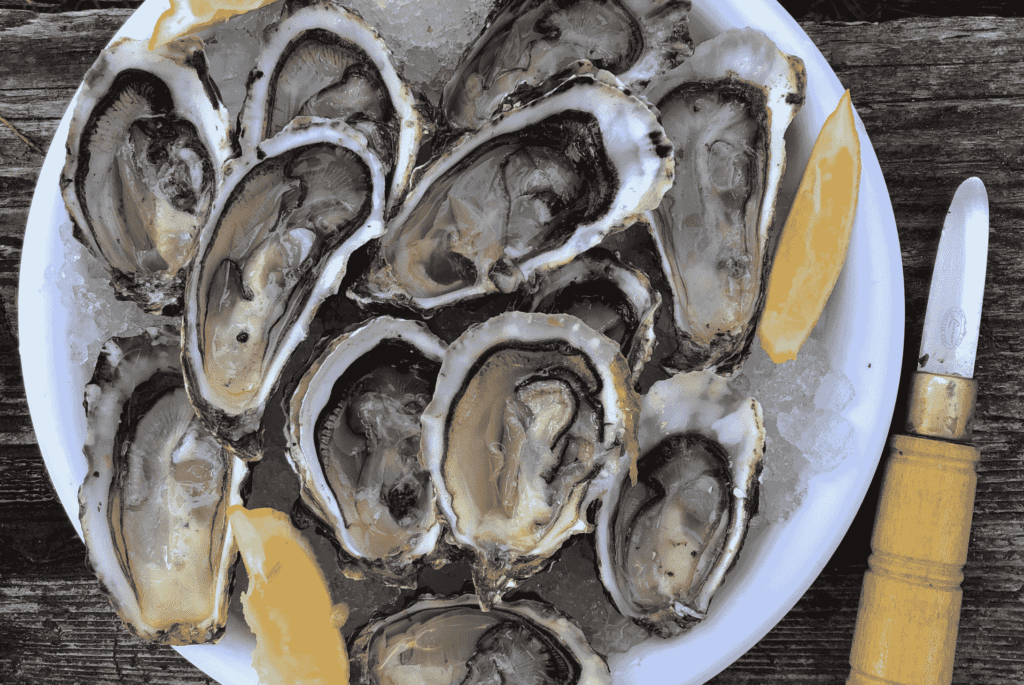Zinc is an essential mineral that plays many important roles for your body. Zinc is involved in many aspects of your cellular metabolism and can strengthen your immune function, improve your eye health, support wound healing, and more. It’s also needed for maintaining your sense of taste and smell. Because our bodies can’t naturally produce this nutrient, we can only obtain zinc through diet and supplements.
The recommended daily value of zinc is 11 milligrams for men, 8 milligrams for women, and 11 milligrams for breastfeeding mothers. The daily value is low because zinc is a trace mineral, meaning our bodies only require small amounts. Zinc is naturally present in many foods, added to others, and available in a variety of supplements. Eating a balanced diet that includes zinc-rich foods is important for your overall health.
Here are 6 foods that are naturally high in zinc:
Oysters
Oysters are a healthy, low-calorie source of zinc. Just 6 medium-sized oysters can provide you with 32 milligrams of zinc. Oysters are also packed with other valuable minerals and vitamins, such as vitamin B12, iron, and selenium.
Pumpkin Seeds
Pumpkin seeds are a great source of zinc. Every 100 grams of pumpkin seeds contains approximately 7.99 milligrams of zinc. Pumpkin seeds are also a good source of potassium, magnesium, and calcium.
An easy way to incorporate pumpkin seeds into your diet is adding them as a topper to your salads. You can also add them to your soups, yogurt bowls, and morning oatmeal.
Chicken
Not only is chicken loaded with protein, it also provides a decent source of zinc, too. According to the USDA, just one cup of chopped roasted, skinless chicken breast contains 2.13 milligrams of zinc.
Mushrooms
Though vegetables aren’t typically the richest sources of zinc, some vegetables, such as mushrooms, provide a higher amount of zinc than others. Mushrooms contain a decent amount of this essential mineral. According to the USDA, one cup of sliced raw mushrooms contains 0.36 milligrams of zinc. Shiitake mushrooms are the best option, with each cup providing 2 milligrams of zinc.
Legumes
Legumes, such as chickpeas, lentils, and beans, all contain a substantial amount of zinc. 1 cup of lentils provides 2.52 milligrams of zinc per cup. A half cup of chickpeas has 1.3 milligrams, and edamame has 1.1 milligrams of zinc.
Legumes are a great low-fat and high-protein food to add to your diet, especially if you’re vegetarian or vegan and struggling to add more zinc to your diet.
Cashews
Not only are cashews delicious, they’re also a decent source of zinc for a balanced diet. 1 oz of dry roasted cashews has 1.6 milligrams of zinc. Cashews are a quick and convenient snack that are also full of healthy fats and fiber.
Supplements
Aside from diet, you can also get your daily recommended value of zinc through supplements. However, it’s important to stay away from high-dose zinc supplements in order to avoid overconsumption, unless recommended by a doctor.
This being said, unless you have a medical condition that is hindering your zinc absorption, you should be able to meet your daily recommended zinc value through diet alone.
Signs of zinc deficiency
Though zinc deficiency is rare, it can still occur. Symptoms of severe zinc deficiency can include skin rashes, impaired wound healing, impaired growth and development, and behavioral issues.
Other less severe symptoms can include decreased immunity, dry skin, fertility issues, and thinning hair.
The bottom line
Zinc is an essential mineral, and eating enough of it is important. If you’re worried you’re not getting enough zinc in your diet, talk to your doctor about other options that are available to you.
If your doctor suspects a zinc deficiency, they may order a blood plasma test for you. You can contact our lab for more information on this test.
